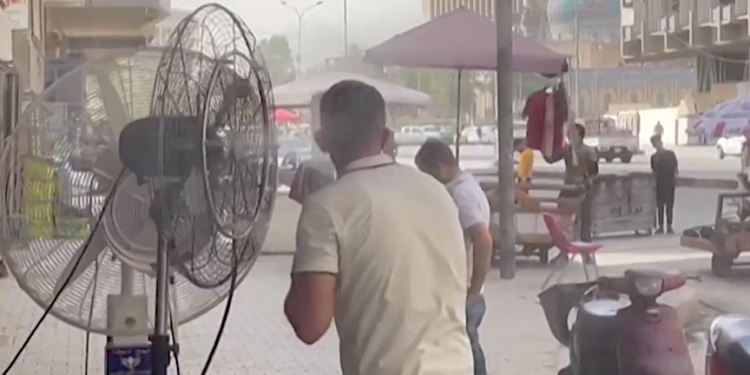A severe heatwave sweeping across the Middle East has brought nighttime temperatures to unprecedented levels, with some areas recording their hottest nights on record. The extreme overnight heat is placing extraordinary stress on communities, infrastructure, and energy systems across the region.
Record-breaking temperatures
Meteorological agencies reported that cities in Saudi Arabia, Kuwait, and Iraq experienced minimum temperatures exceeding 40°C overnight, far above seasonal norms. In some desert areas, readings did not drop below 38°C even after midnight, highlighting the intensity and persistence of the heatwave. Experts say these conditions are linked to a combination of climate change and unusual high-pressure systems over the region.
Impact on daily life
The extreme overnight heat is affecting sleep, health, and daily routines. Residents are facing heightened risks of heat exhaustion and dehydration, particularly among vulnerable populations such as the elderly and children. Emergency services have issued warnings, urging people to stay indoors, limit outdoor activities, and ensure access to cooling and hydration.
Energy and infrastructure challenges
Electricity demand has surged as millions rely on air conditioning to cope with the heat. Power grids in major cities are under strain, with rolling blackouts reported in some areas. Transportation and construction sectors are also grappling with delays and hazards due to the prolonged high temperatures. Authorities are urging businesses to adopt flexible hours and to provide protections for workers exposed to the heat.
Climate context
Climatologists link the record-breaking heat to broader trends of rising global temperatures. Studies show that the Middle East is warming at a faster rate than the global average, increasing the frequency and intensity of extreme heat events. Analysts warn that prolonged exposure to such conditions could have serious long-term consequences for human health, agriculture, and water resources.
Regional responses
Governments across the Middle East have activated emergency protocols, including opening cooling centres and mobilising medical teams. Public awareness campaigns are emphasising the dangers of heat-related illnesses and encouraging citizens to check on vulnerable neighbours. Energy authorities are coordinating with utilities to stabilise supply and prevent widespread outages.
Looking ahead
Forecasters predict the heatwave will persist over the next several days, with only modest relief expected at night. Experts caution that unless long-term mitigation strategies are implemented, such extreme events may become more frequent, highlighting the urgent need for climate adaptation measures across the region.
REFH – Newshub, 16 August 2025




Recent Comments